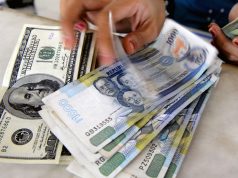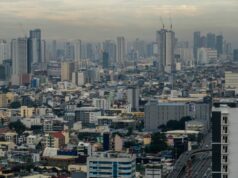US worries over mineral access seen opening up investment
A US State Department program to ensure sustainable access to strategic minerals could open up opportunities for investment and new markets for the Philippines, a mining regulator said.
The Energy Resource Governance Initiative (ERGI), run by the State Department’s Bureau of Energy Resources, seeks to ensure sustainable access to 17 rare earth elements and 14 other minerals like copper, lithium, uranium and manganese.
ERGI could “open up other markets for the Philippines and baka may mga (there could be) US companies (who could invest in the Philippines) to explore for and possibly process rare earth minerals, Mines and Geosciences Bureau (MGB) Director Wilfredo G. Moncano told BusinessWorld via phone.
China currently controls the supply of rare earths, which are considered strategic because of their use in advanced battery technologies, which are expected to drive the electric-car industry. They are also widely used in the telecommunications and defense industries.
Chinese control of a key resource has heightened fears in Washington that Beijing might someday retaliate in the current trade war by withholding rare earths, for which it is a major supplier as well as the lowest-cost producer.
Announced in June, ERGI, according to the State Department fact sheet, assumes a possible 1,000% increase in demand for “critical energy minerals” by 2050 and hopes to direct private investment in well-run, sustainable mining industries worldwide with the potential to safeguard US access to strategic materials.
Mr. Moncano estimated that rare earths are 95% controlled by China.
China’s willingness to use rare earths as leverage in the trade war was signalled by President Xi Jinping’s visit to a rare earths plant in May.
Reuters reported on Sept. 27 that nine countries, including the Philippines, are being considered as ERGI partners.
Secretary of State Mike Pompeo met the foreign ministers of the nine countries on Sept. 26 on the sidelines of the United Nations General Assembly in New York.
Asked to comment, Foreign Affairs Assistant Secretary Emmanuel R. Fernandez said that the Philippines has not yet committed to ERGI.
“There was no signing and the Philippines did not commit to anything. The Philippines only attended the briefing,” he said in a text message.
Chamber of Mines of the Philippines Executive Director Ronald S. Recidoro said ERGI is a positive development because the Philippines has untapped mineral reserves.
“The country has significant potential for copper, nickel, and other strategic minerals, which is still largely untapped,” he said in text message.
“Our participation in the initiative could lead to technology transfer and increased interest from major mining investors, which will help grow the mining industry from an economic and technical perspective,” he added.
In September, Analiza R. Teh, undersecretary for climate change and mining concerns of the Department of Environment and Natural Resources (DENR), estimated that the Philippines is mining less than 2% of its potential mineral-bearing land.
“We have 30 million hectares of mining area, [that is only] 2%,” she told reporters on the sidelines of the Mining Conference 2019.
Mr. Moncano said the US is likely to invest in the best-run mining industries with coherent policy in place.
“Ang nakaka-discourage lang talaga sa (The thing that discourages) investors is (the) policy environment,” he said.
Former Environment Secretary Regina Paz L. Lopez banned open-pit mining in April 2017 and was supported by President Rodrigo R. Duterte, thereby denying mining companies a method which they consider the most efficient for extracting minerals.
Mr. Duterte rejected a proposal by the Mining Industry Coordinating Council (MICC) to lift the ban in November 2017.
The MGB has called the possible lifting of the ban a “political decision” and will also largely depend on the recommendation of Environment Secretary Roy A. Cimatu.
The industry is also in the middle of an overhaul of the way it is taxed. Bills increasing the share of the government in mining revenue have been filed in the 18th Congress.
One of the versions proposes a reduction of royalties on large-scale mining within mineral reserves to 3% of gross output from the current 5%, and the introduction of a 1-5% margin-based royalty on those outside mineral reserves.
Senate President Vicente C. Sotto III and Majority Leader Juan Miguel F. Zubiri each filed bills which would increase the government’s share, while Representative Jose Ma. Clemente S. Salceda, chair of the House Ways and Means committee from Albay’s second district, said he will push for the use of 70% by the national and local governments, and 30% for a sovereign wealth fund.
He also proposed to implement an auction system for mining tenements instead of the current “first-come, first-served” basis. — Vincent Mariel P. Galang



